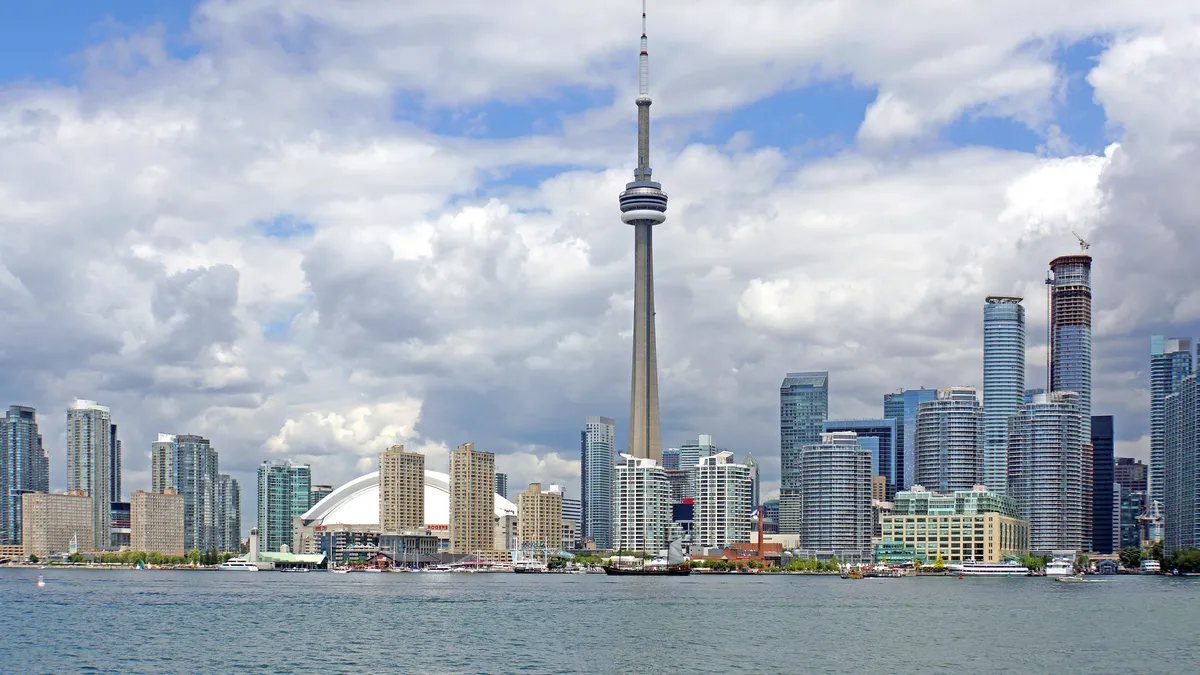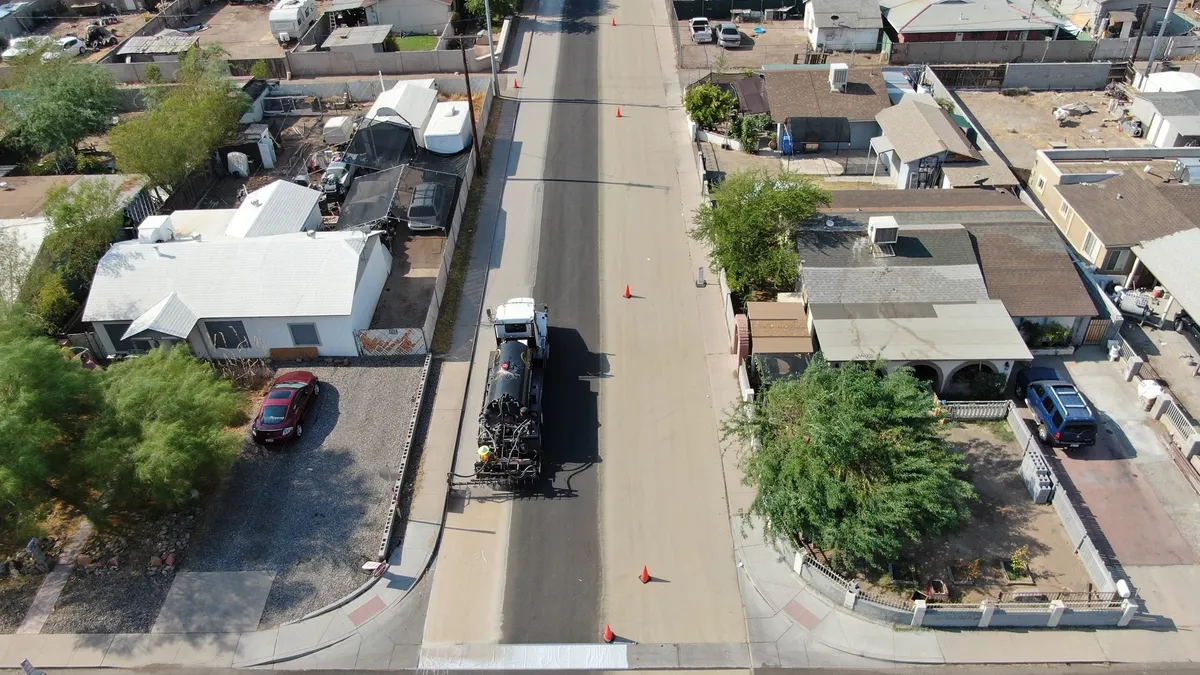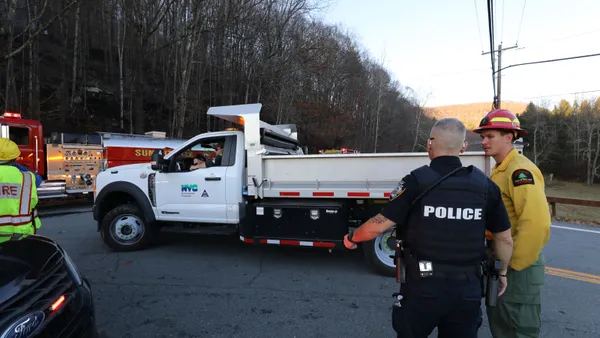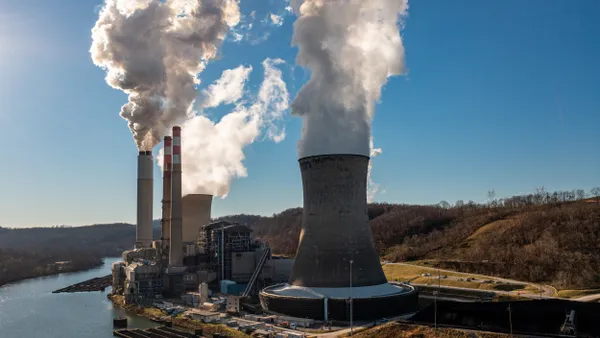Dive Brief:
- Toronto on Tuesday released its first resilience strategy, designed to help the city "survive, adapt and thrive in the face of any challenge, particularly climate change and growing inequities." That makes Toronto the second Canadian city, after Montreal, to release a resilience strategy.
- The strategy includes 27 goals, many of them dealing with environmental challenges. The document calls on Toronto to adopt "coordinated, large-scale climate mitigation and adaptation efforts," and to "prioritize protection of the most vulnerable residents" in the face of weather extremes.
- The plan does not contain dedicated funding, but is meant to inform future decision-making. City Councilor Jennifer McKelvie told the CBC the strategy would "interweave" resiliency considerations "into all of the decisions that we make."
Dive Insight:
Toronto’s resilience strategy came out of a collaboration with 100 Resilient Cities (100RC), the Rockefeller Foundation effort that has helped craft resilience strategies in more than 60 other cities. That project is being disbanded and replaced by the Adrienne Arsht-Rockefeller Foundation Resilience Center this summer.
While Toronto’s plan is largely about the threat of climate change and extreme weather, it does not limit itself to traditional infrastructure adaptation. For example, a large section of the strategy deals with city government, prioritizing the needs of indigenous peoples and underprivileged communities, and expanding civic engagements.
A key action item in the new strategy deals with flood risk, building on a plan released by 20 city agencies on Monday. The "Flood Resilient Toronto Charter" would fast-track flood-protection projects across several agencies, including a new data analysis to identify the areas most at risk from aging infrastructure. The city has seen five severe storms since 2000, as well as high water levels in 2017, that have made urban flooding a more pressing problem, especially as climate change causes sea levels to rise.
Another key item in the report deals with housing, to protect the growing city from "shocks" that can result from extreme weather, like flooding or extreme cold. The most pressing priority, according to the report, comes from high-rise rental apartment towers; more than 500,000 Toronto residents live in high-rise towers that are more than 35 years old. The city has already been working to encourage retrofits and greenhouse gas-reduction incentives to bring the buildings up to code.
As climate change continues to pose risks to cities, the traditional silos in government have to be broken down to integrate resilience and adaptation throughout the city. Toronto already has a reputation as a leading smart city for its use of data and technology; the resilience strategy will build on that work and act as a model for other coastal cities looking to get ahead of climate change.










